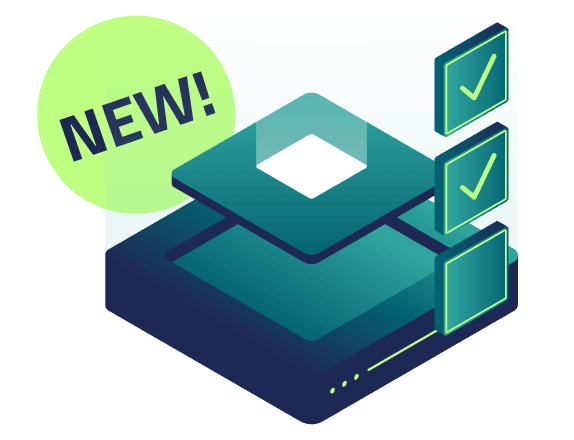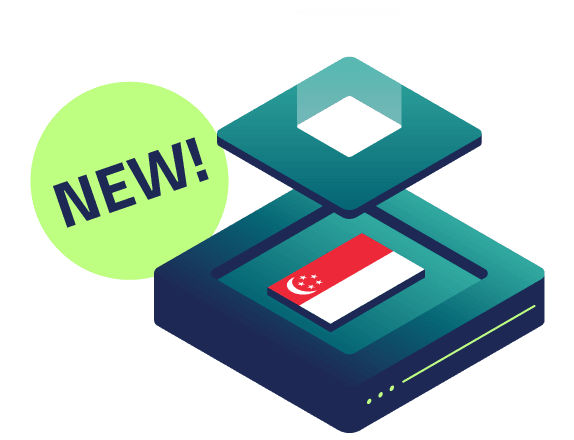Root server offers
Powerful root servers with CPU and RAM resources that are exclusively available to your applications.
A root server is the best choice for anyone who appreciates the advantages of both dedicated servers and virtualized servers.
RS 1000 G12
- AMD EPYC™ 9645
- 8 GB DDR5 RAM (ECC)
- 4 dedicated cores
- 256 GB NVMe
- Snapshots (Copy-On-Write)
- Remote console and much more...
RS 2000 G12
- AMD EPYC™ 9645
- 16 GB DDR5 RAM (ECC)
- 8 dedicated cores
- 512 GB NVMe
- Snapshots (Copy-On-Write)
- Remote console and much more...
RS 4000 G12
- AMD EPYC™ 9645
- 32 GB DDR5 RAM (ECC)
- 12 dedicated cores
- 1 TB NVMe
- Snapshots (Copy-On-Write)
- Remote console and much more...
RS 8000 G12
- AMD EPYC™ 9645
- 64 GB DDR5 RAM (ECC)
- 16 dedicated cores
- 2 TB NVMe
- Snapshots (Copy-On-Write)
- Remote console and much more...
RS 12000 G12
- AMD EPYC™ 9645
- 96 GB DDR5 RAM (ECC)
- 20 dedicated cores
- 3 TB NVMe
- Snapshots (Copy-On-Write)
- Remote console and much more...
RS 16000 G12
- AMD EPYC™ 9645
- 128 GB DDR5 RAM (ECC)
- 24 dedicated cores
- 4 TB NVMe
- Snapshots (Copy-On-Write)
- Remote console and much more...

News unlocked: Advanced Network Configuration for Root Servers
With new Root Server G12 orders, you can now decide for yourself which public network connection you require: IPv4+IPv6, IPv6 only or Cloud vLAN only. More flexibility, more (cost) control - suitable for every setup.
Learn more >
KVM-based root server
With our root servers, we offer high-performance vServers based on KVM with guaranteed RAM and CPU resources. Thanks to KVM, our root servers offer almost all the functions of a dedicated server.
Additional features such as the ability to create snapshots or maintain the vServer remotely via VNC console open up a wide range of use cases. Thanks to the general use of branded hardware, redundant uplinks and a redundant power supply, our vServers offer optimum availability for professional use.
Decide for yourself which operating system and management system you want to use on your vServer.You can customize all server services and install software yourself via SSH and the web VNC console. You can start, stop, reboot and import images with our admin panel SCP (Server Control Panel) software. The SCP also provides you with extensive traffic statistics, the option of inserting a CD-ROM or DVD and creating snapshots of the vServer's hard disks. The SCP makes managing a vServer particularly easy.
Root server use cases
- RS 1000 G12
RS 1000 G12
This root server is ideal as an entry-level solution for web and mail servers, as well as light database applications, and offers balanced performance for beginners.
- RS 2000 G12
RS 2000 G12
With extended resources, including more RAM and a larger SSD, the RS 2000 G12 is perfect for medium-sized web and mail servers, complex web applications and application servers.
- RS 4000 G12
RS 4000 G12
The RS 4000 G12 offers high performance for large enterprise platforms, extensive web applications and data-intensive scenarios. It is ideal as a database server with extensive resources.
- RS 8000 G12
RS 8000 G12
For the highest performance and resource requirements, the RS 8000 G12 with an impressive 64GB RAM and 14 dedicated cores as well as a very large SSD is the ideal choice for high-performance application servers, web and mail servers as well as extensive databases.
Dedicated server vs. root server
A dedicated server is a separate piece of hardware that is exclusively available to you for your applications. A root server is operated on a host system alongside other virtual machines.However, this does not mean that no dedicated resources are available to you: Rather, the root server combines the advantages of a dedicated server with those of a virtualized system.
With both systems, you have full root access to the server's operating system. This means that you have the highest level of administrative control. These servers are particularly suitable for experienced admins with extensive Linux knowledge who want to customize the operating system and system configuration according to their own ideas.
With a dedicated server, the performance of the system is available to you at all times without restrictions. With our root servers, we also guarantee this for the CPU cores booked and the RAM provided.
A virtualized system, on the other hand, offers you functions that are often not available with dedicated servers, or are only available in a roundabout way: You can conveniently create snapshots, for example, before making major configuration adjustments. The system is conveniently controlled via a web interface (Server Control Panel), which you can use to install images, insert CDs or DVDs and which also includes a web VNC console.
If you appreciate the advantages of both dedicated servers and virtualized servers, a root server is the best choice. For ARM64 workloads, we recommend our ARM servers.
Advantages of our root server offers
Our root servers combine the advantages of virtual and dedicated servers. Despite virtualization, the root servers offer you guaranteed AMD EPYC™ 9645 2 CPU cores and fast DDR5 RAM.
You can access the hard disks via fast hardware RAID on SSD hard disks. They are easy to manage. For example, you can create snapshots, import and export images and much more. For AI/ML, rendering, or other GPU-enabled jobs, we recommend our vGPU servers.
Memory expansion for root server
Easily expand your required storage with physical hard disks using Local Block Storage. Customize your data backup without fixed runtimes and add up to a total of 8 TB of storage for your applications. Get more flexibility with Local Block Storage and benefit from netcup's top prices.
Local Block Storage Price Calculator
Unit
GB
€0.01per month
1 TB = 1024 GB / Available for root servers from G9, VPS x86 from G10 and VPS ARM64 G11 (up to max. 8 TB) as well as selected offers of the VPS x86 G11s (up to max. 2 TB). vGPU plans can be extended with up to 4 TB in sum. The price per GB is €0.0119. The total amount is rounded to the nearest cent.
Our satisfaction guarantee
Before you commit to a contract with us, we want you to be convinced of our root server products and that they meet your requirements. If you are not satisfied with your root server within 30 days of ordering, you can return it and receive a full refund of the basic fee (price per month times billing period).
netcup SCP App
The netcup SCP app allows you to access your root servers, vServers and storages at any time and from anywhere. In addition to statistics and logs, the app provides a general overview and control of your servers. Download the netcup SCP app now for free via the Google Play Store or the App Store on your smartphone.

